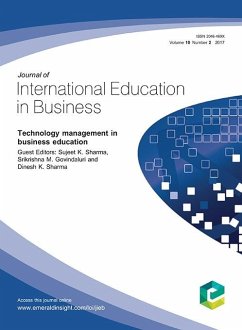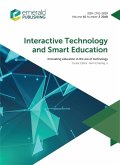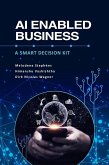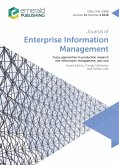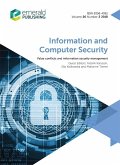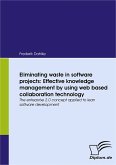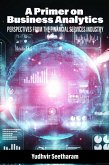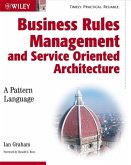The rapid growth in the number and types of learning technologies has the potential to influence international business education and internationalization. The domain of business education, both local and international, may have lagged in terms of adoption and exploitation of these technologies. This issue focuses on the problems underlying diffusion and management of technologies in business education and aims to understand the evolution, development, diffusion and impact of these technologies in business education in an international context. This special issue is an attempt to comprehend the impact of technology management in business education settings. Furthermore, it provides platform to researchers to share their findings to decision makers and fellow researchers.This special issue begins with a research article on "e;Can Clicking Promote Learning? Measuring Student Learning Performance Using Clickers in the Undergraduate Information Systems Class"e;. This study seeks to empirically model the relationship between the use of clickers and understand students' learning performance in the United Kingdom. This research provides useful insights for researchers, instructors, and academic administrators for the constructive use of clickers to improve learning experiences.The second research article "e;How Mode of Delivery Affects Comprehension of an Operations Management Simulation: Online vs. Face-to-Face Classrooms"e;analyzes the impact of the mode of delivery, namely, online versus face-to-face, in comprehending operations management simulations. The findings of research reveal how various underlying factors influence the effectiveness of the mode of deliver on the level of comprehension. These findings can facilitate instructors to make better decisions with regard to the mode of delivery in various academic settings.The third research article entitled "e;Social Media Technology Management in College of Technology in Oman: An Empirical Analysis"e;. This research examines the impact of utilitarian, hedonic, and social values on the perception of instructors towards the usage of social media technology. The findings of this research reveal how a high usage of social media technology can strongly influence the teaching and learning practices of instructors. This research study is among the few studies focusing on the influence of usage of social media technology by instructors in the context of Middle Eastern Country like Oman. The next research article is entitled "e;Factors influencing students' adoption of e-learning: A structural equation modeling approach"e;. This research develops and tests an empirical model based on extension of the well known Unified Theory of Acceptance and Use of Technology (UTAUT) for e-learning in the context of a developed country.The fifth research article is "e;Technological Leverage in Higher Education: An evolving pedagogical paradigm"e;. This research study involves modeling the perception of students towards computer-based exams on a digital device and willingness to adopt the same for the assessment purpose. Smart PLS-SEM approach is employed to provide empirical evidence for supporting the use of e-exams in e-learning programs.The last research article is entitled "e;Internet-Based Learning (IBL) in Higher Education: A Literature Review"e;. This article includes a comprehensive discussion of a variety of Internet based learning techniques currently employed in higher education settings. This research will help decision makers to choose the best Internet based learning approach for achieving higher level of returns on investments in their academic environments.This special issue has six research articles that provide a wealth of research findings and insights to researchers, academicians, and academic administrators and can facilitate them in making better decisions and developing effective solutions to technology related problems in international education. We hope that this issue is able to generate a greater interest in understanding the theory and models underlying effective decision making in the technology management problems in international education and provide good solutions to existing problems.
Dieser Download kann aus rechtlichen Gründen nur mit Rechnungsadresse in A, B, BG, CY, CZ, D, DK, EW, E, FIN, F, GR, HR, H, IRL, I, LT, L, LR, M, NL, PL, P, R, S, SLO, SK ausgeliefert werden.

